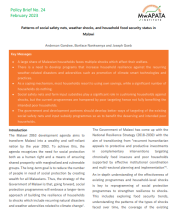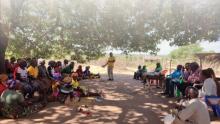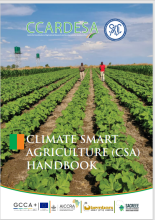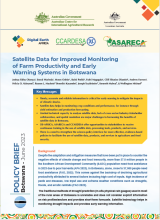Historically, traditional cropping systems are based on diversification, thus making a significant contribution to food security for the household. Intercropping may offer farmers the opportunity to mimic this diversity. The aim of this study was to evaluate the productivity of a taro-bambara intercrop. The intercrop combinations were 1:1 and 1:2, compared with taro and bambara sole crops. Growth parameters and yield components were determined separately for each crop. Thereafter, land equivalent ratio (LER) was calculated to evaluate the productivity of the intercrop. Plant height of taro, as the main crop, was not significantly affected by intercropping. However, leaf number was significantly affected (P<0.001). Intercropping taro resulted in reduced leaf number compared with the sole crop; leaf number in response to the 1:2 intercrop was significantly lower than that of 1:1 intercrop. Bambara growth was significantly (P<0.05) affected by intercropping in that plants were taller and had more leaves when intercropped with taro. Taro yield was not significantly affected by intercropping, although yield generally decreased under intercropping compared with the sole crop. Bambara yield was also not significantly affected by intercropping. The LER showed that intercropping was more productive than sole cropping. The 1:1 intercrop had a LER of 1.71 compared with 1.36 for the 1:2 intercrop. It is concluded that although intercropping had variable effects on the growth of both taro and bambara, there was an agronomic advantage to intercropping.
ISHS

























































